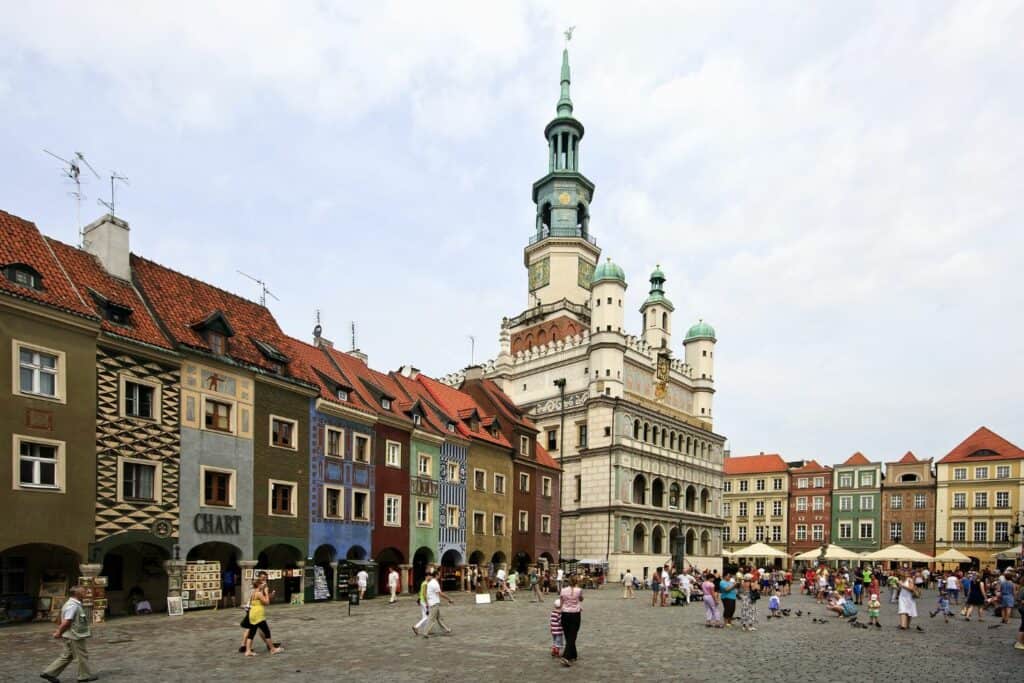
If you’re interested in moving to Europe but want a place with a low cost of living, consider Poland. Poland offers the European lifestyle, convenient travel opportunities, and modern infrastructure, but it’s less expensive than many countries in Western Europe.
In this edition of our Expat Military Retiree Profiles, learn why Army veteran David Stroupe retired to Poland with his wife and four children. Get David’s practical insights into the process of settling in a new country, plus his take on the challenges and rewards of expat living.
Contents (click to expand)
What year did you retire from the military, and when did you move to Poland?
I left the military in 2009 after 13 years. I landed my government job in 2013 before medically retiring in 2020. We moved to Poland the same year.
Why did you decide to retire overseas, and how did you choose Poland?
My wife and I met in 2001 while I was stationed in Germany. We got married in 2002. It was always our intention to return to Europe after retirement.
My wife is Polish and German. At first, Poland was not on the radar, as I prefer Germany. But the cost of living is much lower in Poland. Also, we can homeschool the oldest two children (homeschooling is not legal in Germany).
Why did you choose your city?
We wanted to live near the U.S. military presence in Poland. We bought a house about 15 minutes from Powidz Air Base (the new logistics hub for NATO and the U.S. here in Poland) and just under an hour to Poznan, home of U.S. Army Garrison Poland.
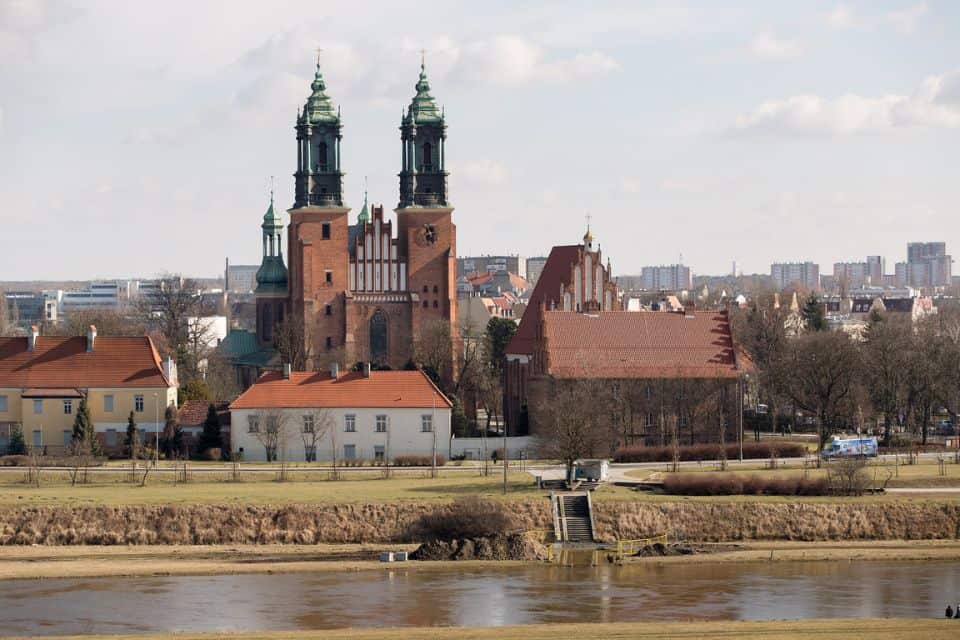
What type of residence visa do you have?
I got my visa a bit differently than most. I still had some of my GI bill to use and could not transfer it to my kids. So, I enrolled in Wroclaw University and got a student visa to move to Poland. Once in country, I applied for residency based on my wife’s citizenship.
How old were your kids when you moved to Poland? Have they adjusted well?
My wife and I have four children: three girls and our son, the youngest. When we came to Poland in August 2020 the kids were 16, 13, 5, and 3.
Initially, they went to public school but had a hard time with it. This year we found them a private school that has some foreign kids in it. Most of the kids speak English, as do the teachers and parents.
My second daughter, who is now 16, has not adjusted as well as I hoped, and we homeschool her through Liberty University.
My 19 year old is in college at Regent University. She has been back in the States for almost two years now.
The youngest children enjoy Poland, but I think we all dislike the cold weather.
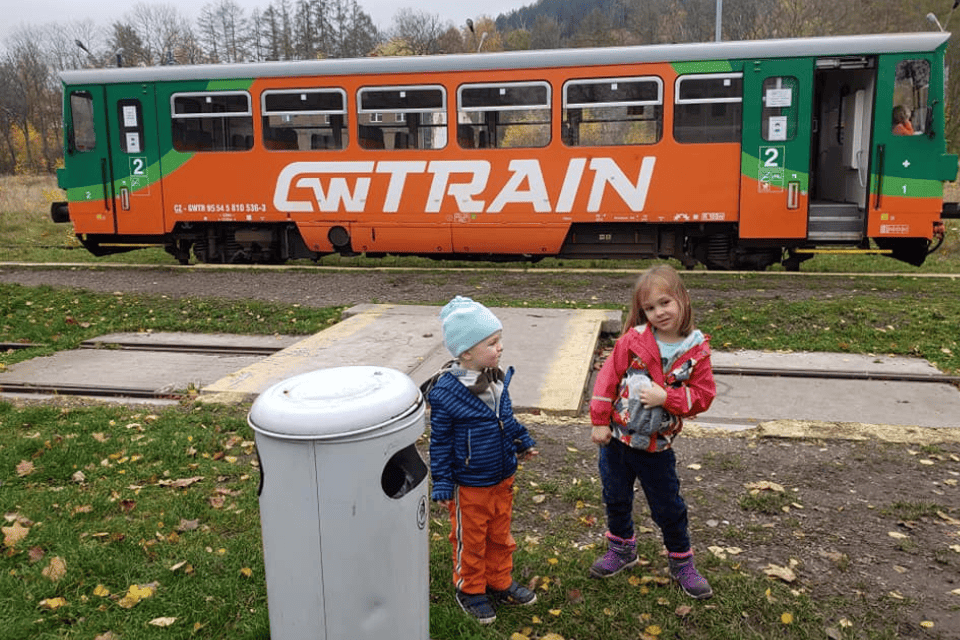
Do you and your family speak Polish? If not, is it difficult to navigate daily life?
My wife and youngest two children speak Polish fluently, but my 16 year old and myself, not so much. I can understand quite a bit and read labels in stores, but what I find hard is pronouncing words.
Sometimes I get lucky, and people speak German or English. My dad was stationed in Germany in the ’80s when I was in kindergarten, so I learned German as a kid. I don’t speak as well as I would like, but I can hold a conversation in German better than I can in Polish.
My oldest two children know more German than Polish, as that was our conversation language with my German in-laws.
How does the cost of living in Poland compare to the U.S.? Please share a few examples of prices.
Last year, my family averaged about $1K per month on groceries.
A small apartment (less than 700 square feet) in Poznan can range up to about $1K but prices seem to be tracking higher. In the past I saw some apartments in our town for about $500.
Our gas bill was about $750 for two months during the winter. Previously, we were on coal, but I switched to gas and installed solar panels, so our electric bill averages less than $50 per month. For water, we paid about $100 for two months.
The cost of gasoline in Poland is one of the lowest in the EU. It is about $1.50 a liter or $6 a gallon. Car insurance is about $1K per year.
My barber charges about $12. My massage therapist is about $35 for one hour.
Internet is much cheaper in Poland than in the U.S. Our internet/TV/phone bill runs less than $100 per month. We have three phones on the account and Wi-Fi internet. I buy prepaid service as well, and that is less than $20 for unlimited for my mobile router and a guest/kids phone we keep on hand.
Dinner for two at a Polish restaurant can run you less than $20. If you go to the big city like Poznan, you could pay about $50.
We frequent an Asian restaurant and get sweet and sour breaded chicken that can feed two for less than $6. Pizza at local spots ranges from $5 to $10. Kebabs run about $5 to $7.
Beer used to cost less than $2 at a restaurant but is now close to $3 at most places, if not more. At the local store it’s about $1 for a bottle.
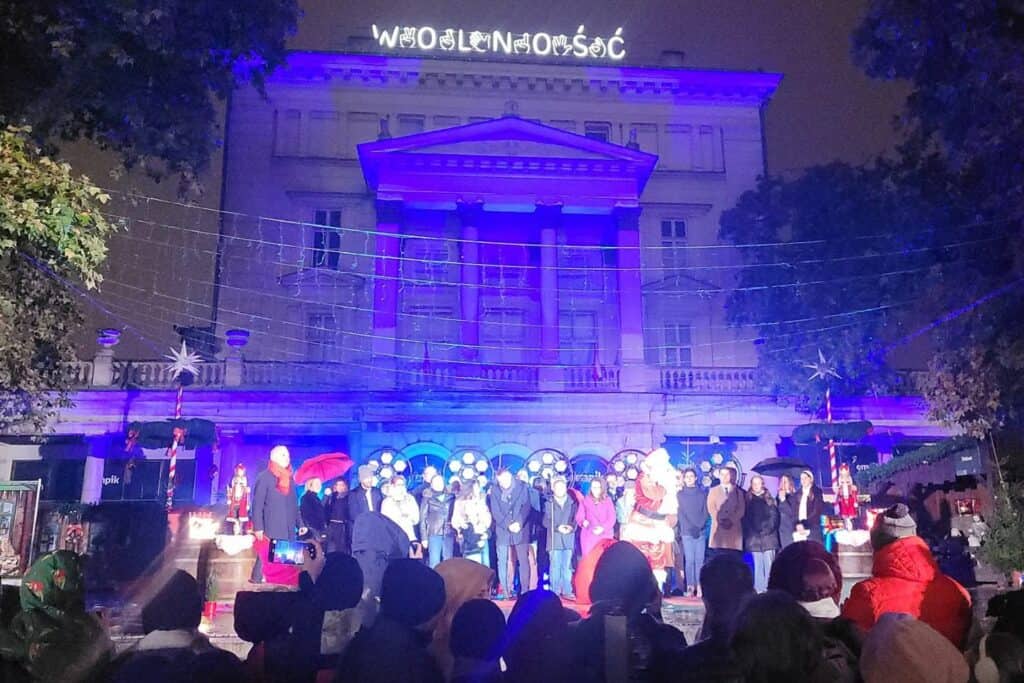
Minium wage just jumped for the new year from about $5.5 to over $7. The average monthly wage in Poland was under $2K in the past, but this year, it will most likely increase.
I should note that my family is quite frugal and not heavy on material things. So, our experience and what we spend may vary quite a bit from others. We have managed to update our home to reduce costs, so our utilities are less than those of many fellow residents.
Having said that, inflation has been terrible in Poland these last few years. Since we moved here, I have seen my buying power go way down due to inflation and the exchange rate.
Can you access U.S. military facilities in Poland?
All bases in Poland belong to the Polish, who provide gate security. Every troop and civilian stationed here must have a base ID card, separate from a CAC. I cannot access the bases, but I have been working on that for some time. With Powidz growing, I hope it will change.
How is the medical and dental care in Poland? Do you have a local insurance plan?
I use Medicover, which is private insurance. The care is good, and it’s about $500 per year for one person (co-pays average around $5).
They have coverage all over the country, and they have their own centers, but the closest center to me is in Poznan, about an hour from home. I can go to local doctors and use Medicover for insurance, but I find that with my limited Polish, I prefer to go to Medicover centers, where I can get an English doctor.
I had medical procedures done that were more costly than normal, but I paid less than $500 out of pocket. They were related to my service-connected disabilities, and I’m still waiting for the VA Foreign Medical Program to reimburse me.
We pay out of pocket for the dentist. Dental care last year was about $75 a visit. I have had fillings done and my 16 year old had her braces done. Much cheaper than if we went through the States.
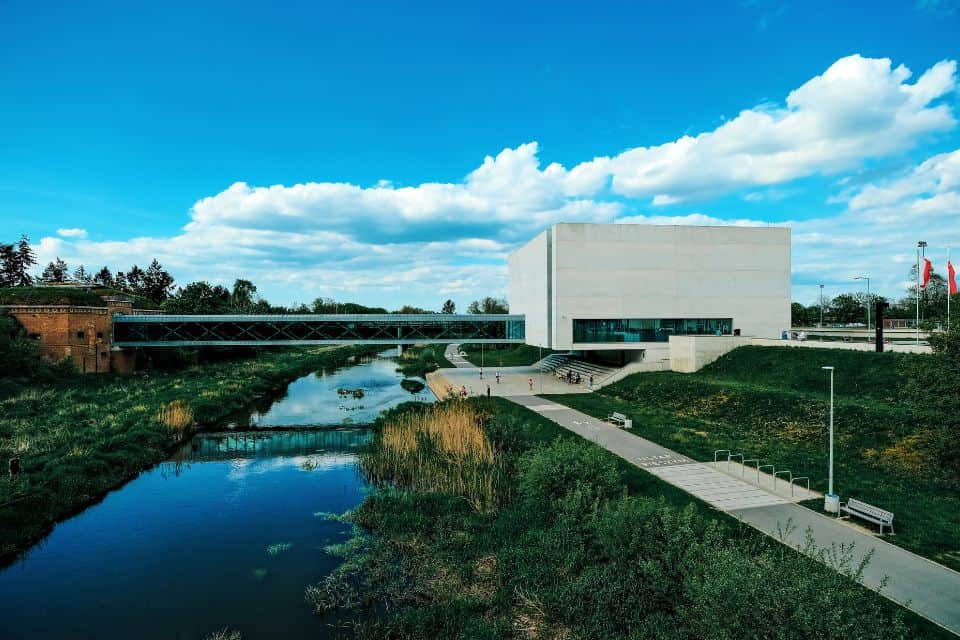
Does Poland tax your government retirement or VA?
No, but Poland will tax my Social Security income when I start receiving it.
Is there anything you wish you had known or done differently prior to moving to Poland?
I would have visited during the winter.
Also, the coal pollution is terrible. It is getting better, but it’s not a great thing.
I wish I had learned more Polish with my wife’s family.
Tell us about life in Poland! How do you spend your time?
My week varies depending on the time of the year. During the winter I do indoor activities, but when it’s warmer, I’m outside working in the yard. We have an acre of land with about a dozen fruit trees, plus a green house and a garden plot. Those can keep me busy from spring until fall with picking the fruit and canning.
Our family typically attends weekly Bible service with the troops from Powidz and Sunday services if we don’t go to church in Poznan.
We also travel quite a bit. In 2022 we traveled twice to Turkey (once by car), plus I took my youngest on an Eastern/Nordic Region trip. We also made a few trips to England.
My town is less than 2 sq km with a population of 5,000. The stores and restaurants are the typical small-town ones. The main restaurant is what is known as a “milk bar,” which is a term left over from communism times. It’s a mom and pop style restaurant with good food and great prices.
The first Zabka, which is basically a Polish 7/11, opened in our town last year. For most of our local shopping we go to the neighboring town, which is less than three miles from the house. They have Lidl (a large grocery chain) and many other retail stores. They also have a nice Asian restaurant and Italian pizzeria with great pasta.
Public transportation is great. I can walk to the train station in less than 15 minutes for a regional train that stops in every town. If I go to the town next door, the Intercity train stops there and is much faster to get to Poznan. It also goes to Warsaw. Going west you can easily get to Berlin.
We have plenty of bike paths in our community, with more coming. In the last few years, the Powidz area has two new road sections that include bike paths connecting to the base. Future plans are for the road system to continue to the interstate with more bike paths.
As Poznan is the biggest city in our “state,” most residents make trips there. In Poznan there are several large malls, Ikea, and hundreds of eateries, including American style.
Do you feel “accepted” in the local community? If not, why?
I don’t feel unwelcome, but older communities are different in Poland. It is difficult to get into the social club, but if you need something they will help you.
What do you like about living overseas, and specifically, about Poland?
I love to travel and love Europe in general. The different languages and cultures are something you just don’t get back in the States.
The weather could be better, but as I see the storms that occur in the States, I am thankful we do not have those here.
For Poland, I like the laid-back feeling and not having restrictions. For example, we can wash our car on a Sunday if we so choose, unlike in Germany. Yet most things are closed on Sundays, and you get that family time. In the States everything is going 100 mph, even on Sunday. I think most of us expats like that slow way of life we can find in Europe.
Also, the public transportation in Europe is great. If you don’t want to drive, you can take a short flight, train, or bus to basically any country you choose.
My kids and I have done more than most people in the U.S. get to do in a lifetime, and that experience is better than having a gold bar in your desk drawer.
What are some of the challenges of expat life and/or living in Poland?
I think the challenge for most expats in any country is getting the residence card and learning the language. If they are married to an EU citizen it is a little easier, but just working that process (plus the cost) can be daunting.
In Poland you cannot exchange your U.S. driver’s license for a Polish one. You must take the written test, and I have yet to see it offered in English.
Also, Americans can’t get mortgages with American income in Poland, so you must pay cash.
What advice would you give to anyone who is thinking of moving abroad? Do you have any specific advice for Poland?
Make sure you really want to make the move and live away from the States.
Take time to explore the place you want to settle before making the leap. Visit at least once during the winter and once during the summer to experience the weather and how tourism impacts the area.
You really need to decide what you are looking for and if a particular place meets your needs. For those who like cold weather or four seasons, Poland may be a good fit, but not for those who like warm weather all year. If you like to ski or other winter activities then Poland is great. If you want the beach, Gdansk has them, but even in the summer the water is freezing cold.
What are your longer-term plans? Do you intend to stay in Poland?
We plan to stay here for the foreseeable future. If the U.S. military deployments to Poland become family tours, and base facilities are expanded, then we intend to stay until the youngest leave school. We own our house and have no mortgage payment. We also plan to travel a lot more in the future.
Having said that, if Poland’s cost of living gets as high as Germany’s, than we may move closer to my wife’s family in Germany.
* * *
Is Poland the right place for you?
If David’s story inspired you to explore moving to Poland, take his advice and go check it out! Rent an Airbnb or other short term apartment for at least a few weeks or months so you can experience life as a local. Use our checklist to find a good short-term rental.
Also, before you pull up stakes to move to any foreign country, reseach the answers to these 24 questions about your potential new home!
To learn about life in other countries, check out our other Expat Military Retiree profiles to read interviews with veterans living all over the world, from small towns in Europe to major cities in Asia!

I personally enjoyed reading David’s story about life in Poland and how he came about making the decision to move / Iive here in Poland. I can certainly see from story. How lives are somewhat similar. Example: I too met my wife in Germany shortly after I retired from the US Army after (22) years in Feb 2004. Shortly thereafter I begun my career as Department of the Army (DA) Civilian in Grafenwoehr Germany in Apr 2004. I met my wife who is a Polish National in Mar 2004. We got married in Germany in 2008. We then moved to Belgium in 2008 after receiving a another job offer / promotion as a DA Civilian. Jump ahead to Feb 2024, I retired from Federal service / a DA Civilian after (20) years. We then moved to Poland in the vicinity of the city of Zagan. Where a large US Contigency of US Amy Soldiers are stationed. We actually live about a (30) minute drive away. That is all for now. Thank you.
Wow, that is very similar and you live close to David!